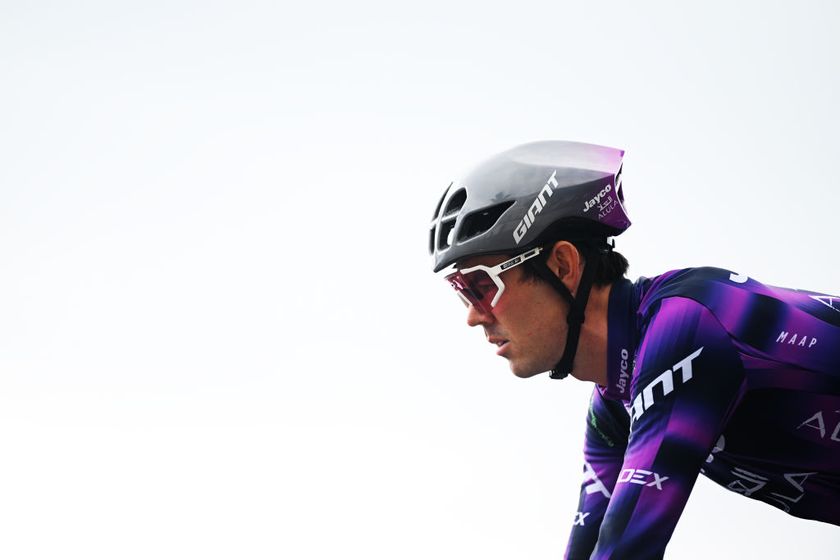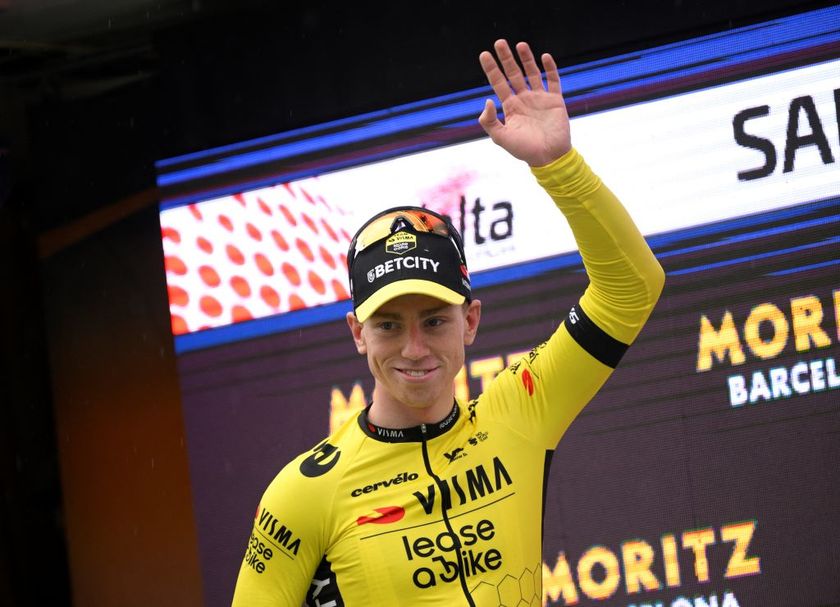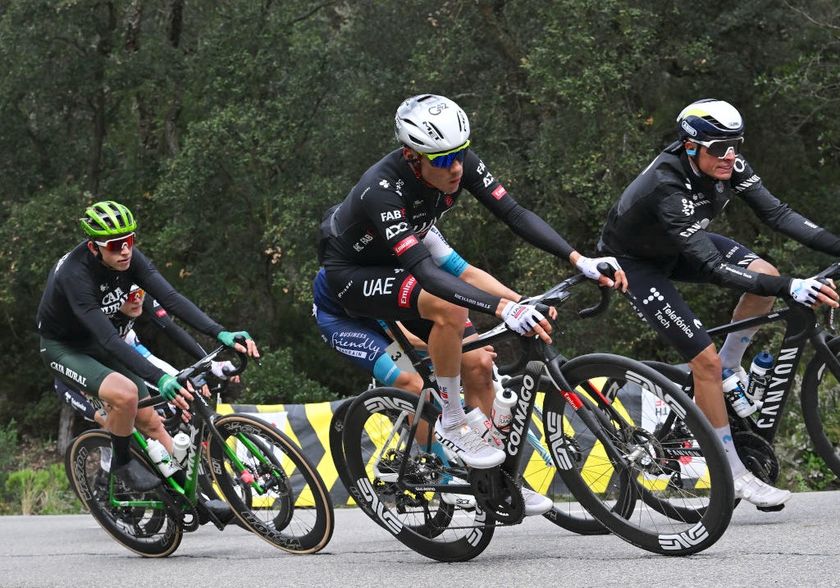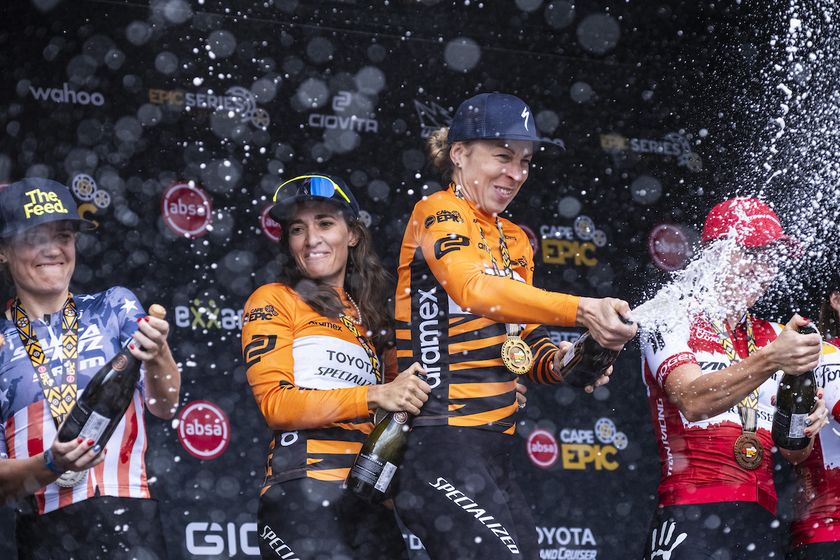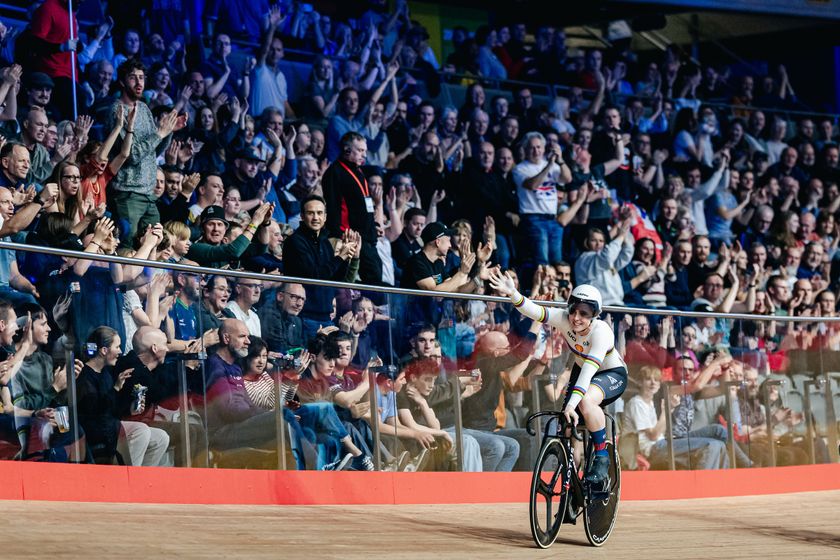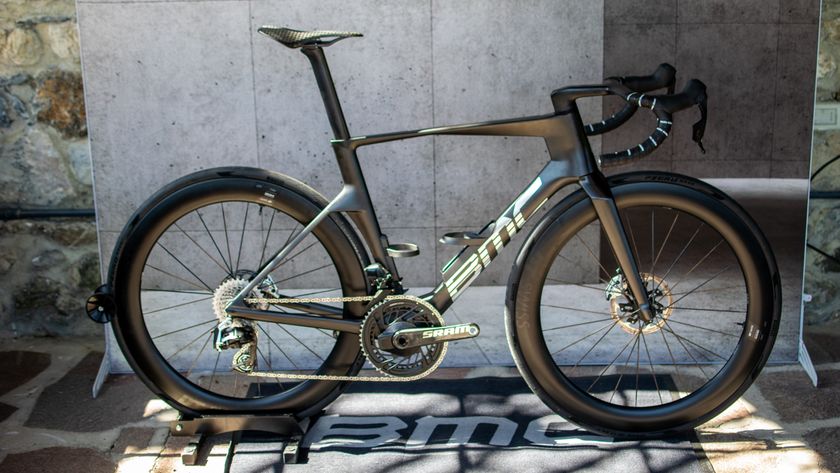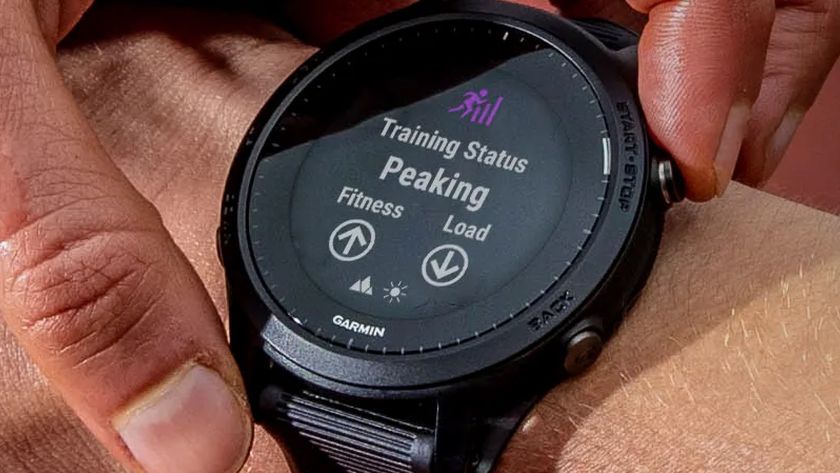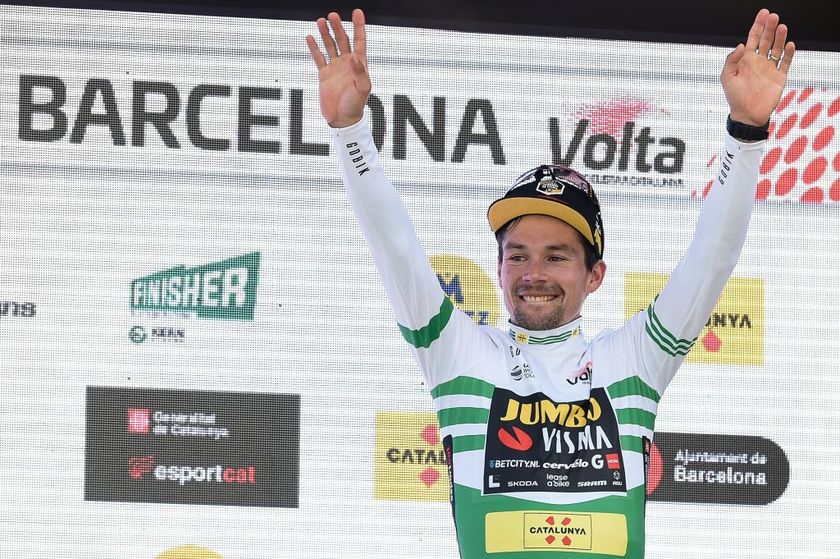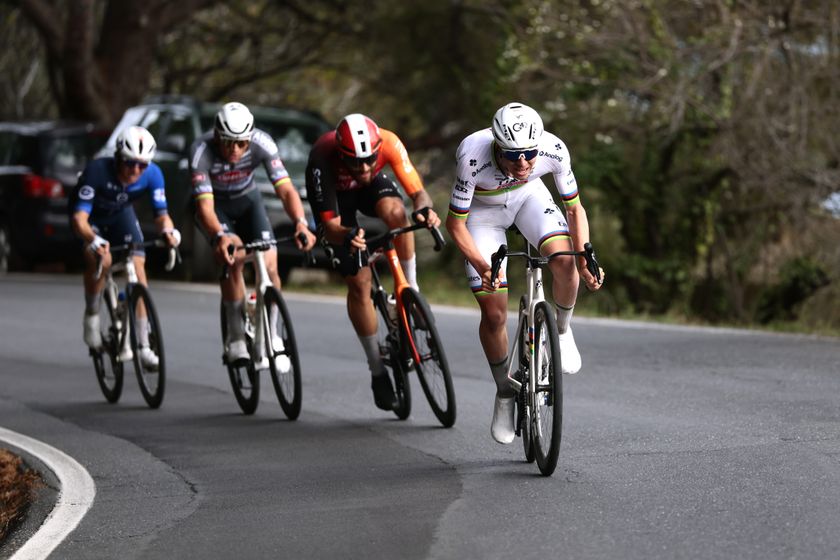Rasmussen: Chris Froome's Giro d'Italia didn't raise a red flag
'He shouldn't have started but he was as credible as others in the race' says Dane




Michael Rasmussen has come to the defense of Chris Froome, stating that in his view the Team Sky leader’s dramatic Giro d’Italia resurrection and eventual win was credible and believable within the context of the race.
Froome’s startling display on stage 19 of the race saw him not only win the stage and take the overall lead, but put over three minutes into his closest rivals with an 80-kilometre solo break over three mountain passes. Froome had come into the stage fourth overall and over three minutes down on the maglia rosa having conceded time on almost every mountain finish bar the Zoncolan. Froome went on to win the race by 46 seconds over Tom Dumoulin, and although the Team Sky leader is still awaiting a verdict in his ongoing salbutamol case, the Briton currently holds the titles in all three Grand Tours. Since his shock emergence as a stage racing force in 2011 he has won or finished second in ten of the 13 Grand Tours he has started.
“I don’t see his performance at the Giro as a red flag,” Rasmussen told Cyclingnews.
“All the difference was made in one day, and under very extreme circumstances. You had the four-time Tour champion, on one of the hardest climbs in Europe, against riders who had nowhere near the same palmares as him, with weaker teams.”
“I know that people will be surprised with my views on this. I’m very critical towards Team Sky and their mismanagement of their own ethical rules. Trust for them has gone but if you look at the performance of just Froome, it was credible in the sense that I don’t think he cheated any of his rivals. That’s not saying that they’re all doing something but no one can convince me that Froome is riding with an engine in his bike or that he’s on kryptonite. Otherwise you’d not put yourself in a position where you’re over three minutes behind on the 19th stage. Then you’d be leading by five minutes at that point. Winning the Giro by 46 seconds is not something that you can easily calculate after racing for over 3,000 kilometres.”
Rasmussen, who retired in 2013, but was famously ejected from the Tour de France in 2007 while in the yellow jersey, and who later confessed to doping, believes that the events played into Froome’s hands at the Giro and that the race turned on its head because of the tactics and situation on the road.
When Froome attacked on the Finestre a small chase group formed, comprising of Dumoulin, Thibaut Pinot, Richard Carapaz and Miguel Angel Lopez. The four riders waited for Pinot’s teammate, Sébastien Reichenbach in the valley after the climb, while the two South American riders refused to help in the chase of Froome. The argument that the majority of Froome’s time gains were made on descents has been debunked but the rider did make consistent gains without losing any significant time on the final climb before the line.
Get The Leadout Newsletter
The latest race content, interviews, features, reviews and expert buying guides, direct to your inbox!
“Team Sky woke up with a plan that day. They wanted to rob the bank and everyone else wanted to defend their positions. Froome, sitting in fourth, had nothing to lose. He had just won the Vuelta and he’s won four Tours. For a guy like him it doesn’t matter if he finishes fourth or eighth. All that mattered was winning the race. He could risk it all. Pinot was more interested in defending his podium and then you had the two South American riders concerned with the white jersey,” Rasmussen argued.
“They were second in command opponents, apart from Dumoulin. Froome took around 35 to 40 seconds on the Finestre, one of the hardest climbs in the world. That’s not a significant amount at all, especially when we saw the second group waiting for each other. For me, Dumoulin threw it away on the Finestre and when he waited for Reichenbach. Dumoulin by then was the virtual maglia rosa and he had everything to lose. While at the same time he knew that if he blew up then his maglia rosa could become a fifth place. Froome could just concentrate on riding as fast as he could. I’m sure that if Dumoulin had been riding on his own he could have ended up only a minute and half behind Froome because he wouldn’t have lost time on the flat or the climbs. Froome took more risks on the descents.”
Cyclingnews Films' second production CRESCENDO is available to buy or rent on Vimeo.
CRESCENDO from Cyclingnews Films on Vimeo.
Regaining form
What caught many by surprise was how Froome was able to put in such a strong performance after being on the back foot for most of the race. He crashed twice in the opening fortnight but other than on the Zoncolan he looked far from convincing. Likewise, his team were far from their typically dominant self until the Finestre, where they collectively blew the race wide open. Finding form at the end of a three-week race has raised debate in the past, most recently with Philippa York giving her expert opinion on the matter. However, Rasmussen suggests that Froome may have looked stronger because of the circumstances in the chase behind.
“There’s always that question mark,” he said when asked about Froome’s jump in performance.
“He had one good day on the Zoncolan but for me Simon Yates lost that day because of arrogance. He should have been on Froome’s wheel immediately when he attacked. Then Yates would have ended up with his fourth stage win and everyone would have pointed the finger at him instead.”
“Maybe Froome’s form wasn’t that much better [ed on stage 19]. Maybe he just rode as if he had nothing to lose. You could put it down to courage. He was going to ride faster on the false flat than Reichenbach or Dumoulin when they’re not going in at 100 per cent, when Froome is going 100 per cent. In my opinion, that’s quite obvious. When you ride with nothing to lose and you have a plan you’re so much stronger.”
“You could argue whether all of them are ‘riding too fast’ but the difference between them wasn’t significant. Someone will then say that the next group with Domenico Pozzovivo was eight minutes behind. That was a group of five or six with just him pulling because he was the only one who had something at stake. If Pozzivivo was ever going to ride an 80km time trial, against Froome and was on a bad day he could easily concede one minute per ten kilometres.”
Not like Landis
In the aftermath of Froome’s stage 19 performance Floyd Landis’ ride on stage 17 of the 2006 Tour de France was drawn up for comparison. Landis was famously stripped of his Tour title after the race due to a positive drug test but on stage 17 to Morzine where he attacked with over 120km remaining and held off an entire peloton, including Rasmussen. The Dane dismissed the comparisons between the two efforts.
“It’s way different. Landis held off three teams that day. And on top of that he still had the second fastest time on Col de Joux-Plane. We started that climb with about 80 riders and most of us were riding flat out to the top. We hadn’t been working that day, so myself, Menchov, and Sastre, we’d never taken a turn on the front until we hit the climb. Only Sastre went up it faster than Landis. Of course, Landis bonked the day before, which made it more spectacular but again Landis started out with a plan and he had nothing to lose. When you have a plan, and you have nothing to lose, there’s a good chance that you’ll succeed. In that way Froome is a good example to be followed.”
“I think it’s rare in cycling that number two can really feel cheated by number one. I didn’t feel cheated by Landis. I think it’s a mistake that Froome started in the first place but you’d have to ask the riders in the race. It’s a mess of a situation and it shows that cycling doesn’t know which leg to stand on when it comes to the fight against doping.”
The central debate surrounding Froome, given his AAF from the Vuelta and his and Team Sky’s history, comes down to credibility. You either believe or you don’t.
“He’s as credible as everyone else in this race,” Rasmussen says.
“Of course, I don’t think he should have been on the start list to begin with because it’s a murky story, not down to Froome but because of Team Sky’s own ethical code and the stupid anti-doping rules that open the door for this.”
Daniel Benson was the Editor in Chief at Cyclingnews.com between 2008 and 2022. Based in the UK, he joined the Cyclingnews team in 2008 as the site's first UK-based Managing Editor. In that time, he reported on over a dozen editions of the Tour de France, several World Championships, the Tour Down Under, Spring Classics, and the London 2012 Olympic Games. With the help of the excellent editorial team, he ran the coverage on Cyclingnews and has interviewed leading figures in the sport including UCI Presidents and Tour de France winners.
